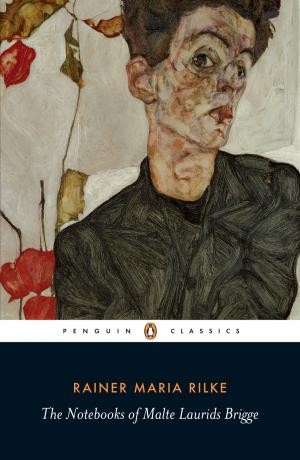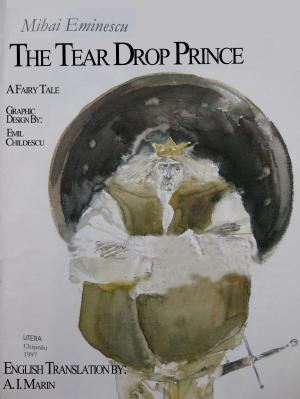The Wizard's Son, Volume 3 (of 3)
Science Fiction & Fantasy, Fantasy, Contemporary, Epic Fantasy, Fiction & Literature, Classics| Author: | Margaret Oliphant | ISBN: | 1230000301023 |
| Publisher: | The Wizard's Son Series | Publication: | February 17, 2015 |
| Imprint: | Language: | English |
| Author: | Margaret Oliphant |
| ISBN: | 1230000301023 |
| Publisher: | The Wizard's Son Series |
| Publication: | February 17, 2015 |
| Imprint: | |
| Language: | English |
Example in this ebook
CHAPTER I.
Was this then the conclusion of all things—that there was nothing so perfect that it was worth a man's while to struggle for it; that any officious interference with the recognised and existing was a mistake; that nothing was either the best or the worst, but all things mere degrees in a round of the comparative, in which a little more or a little less was of no importance, and the most strenuous efforts tended to failure as much as indifference? Walter, returning to the old house which was his field of battle, questioned himself thus, with a sense of despair not lessened by the deeper self-ridicule within him, which asked, was he then so anxious for the best, so ready to sacrifice his comfort for an ideal excellence? That he, of all men, should have this to do, and yet that, being done, it should be altogether ineffectual, was a sort of climax of clumsy mortal failure and hopelessness. The only good thing he had done was the restoration of those half-evicted cotters, and that was but a mingled and uncertain good, it appeared. What was the use of any struggle? If it was his own personal freedom alone that he really wanted, why here it was within his power to purchase it—or at least a moderate amount of it—a comparative freedom, as everything was comparative. His mind by this time had ceased to be able to think, or even to perceive with any distinctness the phrase or motif inscribed upon one of those confused and idly-turning wheels of mental machinery which had stood in the place of thought to him. It was the afternoon when he got back, and everything within him had fallen into an afternoon dreariness. He lingered when he landed on the waste bit of grass that lay between the little landing-place and the door of the old castle. He had no heart to go in and sit down unoccupied in that room which had witnessed so many strange meetings. He was no longer indeed afraid of his visitor there, but rather looked forward with a kind of relief to the tangible presence which delivered him from meetings of the mind more subtle and painful. But he had no expectation of any visitor; nor was there anything for him to do except to sit down and perhaps attempt to read, which meant solely a delivering over of himself to his spiritual antagonists—for how was it possible to give his mind to any fable of literature in the midst of a parable so urgent and all-occupying, of his own?
He stood therefore idly upon the neglected turf, watching the ripple of the water as it lapped against the rough stones on the edge. The breadth of the loch was entirely hidden from him by the projection of the old tower, which descended into the water at the right, and almost shut off this highest corner of Loch Houran into a little lakelet of its own. Walter heard the sound of oars and voices from the loch without seeing any one: but that was usual enough, and few people invaded his privacy: so that he was taken by surprise when, suddenly raising his eyes, he was aware of the polished and gilded galley from Birkenbraes, in which already Mr. Williamson, seated in the stern, had perceived and was hailing him. "Hallo, my Lord Erradeen! Here we've all come to see ye this fine afternoon. I told them we should find ye under your own vine and your own fig-tree." This speech was accompanied by a general laugh. The arrival of such a party, heralded by such laughter in a desolate house, with few servants and no readiness for any such emergency, to a young man in Walter's confused and distracted condition would not, it may be supposed, have been very welcome in any case, and at present in his exhaustion and dismay he stood and gazed at them with a sort of horror. There was not even a ready servitor like Hamish to assist in the disembarkation.
To be continue in this ebook
Example in this ebook
CHAPTER I.
Was this then the conclusion of all things—that there was nothing so perfect that it was worth a man's while to struggle for it; that any officious interference with the recognised and existing was a mistake; that nothing was either the best or the worst, but all things mere degrees in a round of the comparative, in which a little more or a little less was of no importance, and the most strenuous efforts tended to failure as much as indifference? Walter, returning to the old house which was his field of battle, questioned himself thus, with a sense of despair not lessened by the deeper self-ridicule within him, which asked, was he then so anxious for the best, so ready to sacrifice his comfort for an ideal excellence? That he, of all men, should have this to do, and yet that, being done, it should be altogether ineffectual, was a sort of climax of clumsy mortal failure and hopelessness. The only good thing he had done was the restoration of those half-evicted cotters, and that was but a mingled and uncertain good, it appeared. What was the use of any struggle? If it was his own personal freedom alone that he really wanted, why here it was within his power to purchase it—or at least a moderate amount of it—a comparative freedom, as everything was comparative. His mind by this time had ceased to be able to think, or even to perceive with any distinctness the phrase or motif inscribed upon one of those confused and idly-turning wheels of mental machinery which had stood in the place of thought to him. It was the afternoon when he got back, and everything within him had fallen into an afternoon dreariness. He lingered when he landed on the waste bit of grass that lay between the little landing-place and the door of the old castle. He had no heart to go in and sit down unoccupied in that room which had witnessed so many strange meetings. He was no longer indeed afraid of his visitor there, but rather looked forward with a kind of relief to the tangible presence which delivered him from meetings of the mind more subtle and painful. But he had no expectation of any visitor; nor was there anything for him to do except to sit down and perhaps attempt to read, which meant solely a delivering over of himself to his spiritual antagonists—for how was it possible to give his mind to any fable of literature in the midst of a parable so urgent and all-occupying, of his own?
He stood therefore idly upon the neglected turf, watching the ripple of the water as it lapped against the rough stones on the edge. The breadth of the loch was entirely hidden from him by the projection of the old tower, which descended into the water at the right, and almost shut off this highest corner of Loch Houran into a little lakelet of its own. Walter heard the sound of oars and voices from the loch without seeing any one: but that was usual enough, and few people invaded his privacy: so that he was taken by surprise when, suddenly raising his eyes, he was aware of the polished and gilded galley from Birkenbraes, in which already Mr. Williamson, seated in the stern, had perceived and was hailing him. "Hallo, my Lord Erradeen! Here we've all come to see ye this fine afternoon. I told them we should find ye under your own vine and your own fig-tree." This speech was accompanied by a general laugh. The arrival of such a party, heralded by such laughter in a desolate house, with few servants and no readiness for any such emergency, to a young man in Walter's confused and distracted condition would not, it may be supposed, have been very welcome in any case, and at present in his exhaustion and dismay he stood and gazed at them with a sort of horror. There was not even a ready servitor like Hamish to assist in the disembarkation.
To be continue in this ebook















